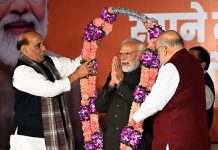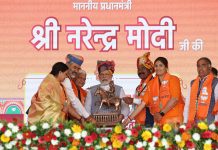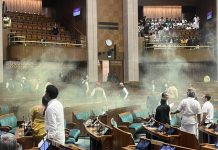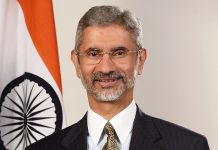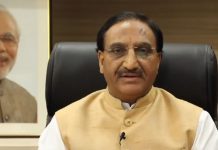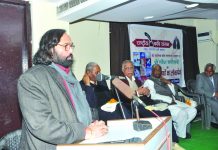How large is India’s morality coop for its chickens to roost? Far too many of our favourite birds have been returning there of late and not all of them have done so for anything better than adding more stink to the odour and the filth which the place is already teeming with. In the language that our media loves to speak, the birds have been coming home to roost.
 It is in this light that the apology tendered by the Delhi Chief Minister and Aam Admi Party (AAP) supremo Arvind Kejriwal is being seen. The apology certainly caused a ruckus in his own party and led his opponents to sport smug and self-righteous smiles over one man’s embarrassment. But the real embarrassment from the apology transcends the AAP convener’s or his opponents’ political fortunes. Its true meaning and implications go far beyond even the world of politics. The apology, its causes and the sequence of events preceding and following it point towards the deep moral decay which is sweeping right across our social spectrum. It is at the same time an indictment that spares none of us — media not excluded. As a society, the chickens we watch strutting homewards have emerged from the eggs that we have been hatching for a long, long time.
It is in this light that the apology tendered by the Delhi Chief Minister and Aam Admi Party (AAP) supremo Arvind Kejriwal is being seen. The apology certainly caused a ruckus in his own party and led his opponents to sport smug and self-righteous smiles over one man’s embarrassment. But the real embarrassment from the apology transcends the AAP convener’s or his opponents’ political fortunes. Its true meaning and implications go far beyond even the world of politics. The apology, its causes and the sequence of events preceding and following it point towards the deep moral decay which is sweeping right across our social spectrum. It is at the same time an indictment that spares none of us — media not excluded. As a society, the chickens we watch strutting homewards have emerged from the eggs that we have been hatching for a long, long time.
At the very core of Kejriwal’s predicament and embarrassment rests the widespread resort to the politics of vulgar calumny — painting your opponents as wanton criminals and sinners. This lies behind the widespread cynicism against politicians in general our country. And that has had another side-effect — and a very disastrous one at that: keeping good people off politics for ever. Now, this has dried up talent available to the most critical and decisive area of our lives — governance.
In short, our own utterly irresponsible and selfish attitude towards politics and politicians is responsible for keeping learned, enlightened, honest and public spirited people miles away from politics. Only, the “managers and manipulators” make it to the profession, and the uncomfortable fact is that we are okay with it.
The point needs further elaboration. Briefly, our social and political system is fuelled by an unholy quid pro quo between the corrupt politician and the greedy and selfish “people”. This QpQ works to perfection and keeps clean, honest and deserving men and women out of the arena of public service.
To a vast majority of the countrymen, a politician is nothing more than ‘langar’ — a free personal and community kitchen which must feed our ethical and unethical hunger at all hours of the day. The successful politician knows us for who we are — ‘free-food’ seekers, and provides for some of our more immediate and cheaper needs. As a quid pro quo, we keep his kitchen warm and functioning with an arrangement under which we condemn him publicly and support him privately. And he doesn’t mind the latter — condemning him publicly, just for the record — as long as we fulfill our agreed role on the former — supporting him privately. The secrecy of the ballot helps us perform both the tasks without much ado.
As long as we are served food — as long as he has eating out of his hand — we are willing to look the other way on where the food in the kitchen is coming from. Generally we know that in the name of the kitchen, truck loads of smuggled and contraband ‘meals’ enter the beneficent food-giver’s store, only a small bit of which “trickles” into our shamelessly outstretched palms, for which we are privately grateful and publicly ‘dismissive’.
But what should worry us the most is the stink emanating from politics around us. So strong is this odour that no sooner does a reasonably clean man take a plunge into the arena than he is dubbed by friends and foes alike as dishonest. It is not uncommon to hear people talking about politics as the “last resort of scoundrels”. Some of the most common adjectives used for politicians are “filthy, corrupt, immoral, cheap, vulgar and guilty of all kinds of sins, including betrayal of the country. “
Some of the criticism heaped on those belonging to the political class is well founded and well deserved. That is bad enough as it is. But what is even worse is that this demonization of the politicization has been elevated to the level of a national anthem. The moment you start talking about anything concerning the country, the conversation inevitably redirects itself towards the ‘filthy politician.’ People talk about politicians with a dishonest, self-righteous indignation. No matter where you happen to be — in schools, colleges, clubs, societies, wedding parties or any social gatherings — running down the politician is the item on top of any social menu. It is as if the country’s political circles were teeming with crooks and cheats and even elements willing to sell of the interests of the nation for the merest lure of profit.
Some of this criticism is undoubtedly justified. But there is more to the malaise than just the quality of politicians we have had to deal with. It needs to be acknowledged that the politician is merely the strongest symbol of the evils existing in society. It is not fair to single him out for special treatment. Yes, he is the most visible symptom of the epidemic of moral breakdown, but he is neither the whole problem nor even the originator of it. What we must acknowledge — and what we are shy of acknowledging — is that a politician is a product of the system, and not the way around. In order to cleanse the system, you cannot start with the politician. If you take that route, you are never likely to reach the goal. In fact, taking that route is merely a proof that you do not really want to reach anywhere. It is the surest way to avoid fixing responsibility — the best way to ensure that the blame does not end at your door. The more we seem to enjoy ridiculing or demonizing the politician, the more we reveal our own fear of the conversation turning to us, and the consequent fear of being exposed.
And just to re-iterate, most of this ridiculing and demonizing is a part of a ‘quid pro quo’ between us and our ‘leader’. It seems to me that our ‘ignorance’ regarding the politician himself being merely a product of the prevalent national temper is deliberate. We know and pretend not to know that he is at best the greatest player of the dirty games we as society play. It is okay to scape-goat ‘the leader’ and to soothe our own conscience or — better still, cheat our own conscience with our accusing finger always pointing outwards. That cannot hide our fear of the finger turning inwards. There is something about our bosoms which is deeply troubling and we just want to keep our minds off it.
If Kejriwal appears to us to be the epitome of opportunism today, it is just because we are not willing to share the blame for the kind of national psyche that has produced him — a psyche which is of our own creation. A politician is what we want him to be: that is the nature of his job. He becomes anything other than what we approve of in him, and he loses out. And he is too smart to try to be anything that we don’t want him to be. He needs our approval. If we want him to remain clean, there is no way he can be anything else for more than a period of just five years- at the most. In fact, not even that because even to get his first opportunity, the politician needs an endorsement from us of his antecedents, his temper, his beliefs and his overall conduct.
 Looked at a little more closely, the phenomenon of the politician as “the filthy and stinking” repository of power has come into existence only because those who worship opportunism and greed have gotten behind our own minds and seen us for who we really are: hypocrites. A politician thrives on our hypocrisy and is always willing to play ball with our petty greed and double standards. We speak the language of honesty but live the life of the scoundrel camouflaged by hypocritical morality. The corruption which a politician indulges does not exist in a vacuam: for one politician to take bribes, there have to be a thousand commoners willing to give bribes. And let us not pretend that the one giving bribes is less guilty than the one accepting it. It takes two to make an unholy alliance. And the politician merely provides the ‘other’ end. The first party in the trade is you — the common man who has no qualms greasing others palms to get extremely petty favours such as an out-of-turn issuance of a driving license or securing admission for your child into an elitist school at the cost of another more deserving child. There is dishonesty in the way our schools are run. There is cynical and heartless pursuit of the money by our doctors. The poor or the middle class common man is fleeced at the hospitals that are run more like money-spinners. And now, the watch dog and the conscience of society — the media — has also joined the unholy race. Why blame the politician alone?
Looked at a little more closely, the phenomenon of the politician as “the filthy and stinking” repository of power has come into existence only because those who worship opportunism and greed have gotten behind our own minds and seen us for who we really are: hypocrites. A politician thrives on our hypocrisy and is always willing to play ball with our petty greed and double standards. We speak the language of honesty but live the life of the scoundrel camouflaged by hypocritical morality. The corruption which a politician indulges does not exist in a vacuam: for one politician to take bribes, there have to be a thousand commoners willing to give bribes. And let us not pretend that the one giving bribes is less guilty than the one accepting it. It takes two to make an unholy alliance. And the politician merely provides the ‘other’ end. The first party in the trade is you — the common man who has no qualms greasing others palms to get extremely petty favours such as an out-of-turn issuance of a driving license or securing admission for your child into an elitist school at the cost of another more deserving child. There is dishonesty in the way our schools are run. There is cynical and heartless pursuit of the money by our doctors. The poor or the middle class common man is fleeced at the hospitals that are run more like money-spinners. And now, the watch dog and the conscience of society — the media — has also joined the unholy race. Why blame the politician alone?
Which takes us back to the Delhi Chief Minister and Aam Admi Party supremo Arvind Kejriwal and the apology offered by him to the Punjab politician Bikram Singh Majithia. There has been a virtual revolt in his party against this apology, and there is as much hypocrisy and political gamesmanship behind this revolt as there is behind the apology — and as much dishonesty in the apology as there was in the original allegations because of which the apology has been forced on Kejriwal.
It is necessary to have a brief look at the background of this apology and why and how it impacts our national life — especially the sham called ‘public morality’.
During the tenure of the Akali-BJP government in Punjab, Jasbir Singh Bhola, perceived by many to be the most powerful ‘drug lord’ operating in the state, was arrested in what the government headed by Mr Parkash Singh Badal called its “War on Drugs”. Just before one of his court appearances, Bhola told mediapersons that a powerful Minister in the Punjab cabinet and a relative of the ruling family, Bikram Singh Majithia was the kingpin behind drug trade in the state and that he — Bhola — too was only a minion in the mafia commandeered by Majithia. To most independent observers, Bhola’s allegation was nothing but an attempt by the confuse the prosecution on his own case by dragging a big name into the case. On another level, this was Bhola’s revenge against a government which had thrown him by the bars and forced him to face the law of the land. Bhola obviously was not expected to garland the government responsible for his misery and the allegation against Majithia was quite obviously an expression of a bitter man’s hatred of and anger against a government which had put him in jail.
But the opposition in Punjab, especially the AAP led by Arvind Kejriwal, saw in this development an opportunity to score ‘morality points’ and to embarrass the government of Parkash Singh Badal by heaping the entire blame for the drug menace at his door.
This unleashed ‘drug politics.’ Suddenly, drugs became so big an issue that it even prompted Bollywood to fish in troubled waters with a flick called “Udta Punjab”. The film painted Punjab as the Global Drug Capital. All hell broke loose. Kejriwal and the Congress party led by the present Chief minister Captain Amaridner Singh latched on to the opportunity and had no qualms in demonizing the state of Punjab and its youth as “drugged.” Not to be left behind, on came Rahul Gandhi and infamously declared that 70% of the youth of Punjab was hooked on drugs. This was a shocking damnation of a state which continued to be the greatest contributor to national food kitty and to the country’s defence forces, and whose youth continued to reign supreme in the world of sports, winning the All India Inter University Overall Sports Championships year after year after year. In the year when the whole country was busy demonizing Punjab as “lost to drugs”, the state’s universities Punjabi University, Patiala, and Guru Nanak Dev University, Amritsar, cleaned all the awards at the national varsities championships, emerging as winners and runners up respectively, virtually blowing the youth of all other states off the scene. And these were the boys and girls being damned as “drugged”. Two of the greatest national cricketing sensations, Shubhman (men) and Harmanpreet ( girls) kept bringing glory to their state and the country. In all the major sports disciplines, Punjab’s youth continued to dominate as did other boys and girls from the state cornering glory in different sphere of life.
But this was not enough to persuade Kejriwal and the Congress to stop heaping humiliation on the state. Kejriwal went to the extent of declaring, Majithia has ruined the youth of the state. I will say it not once but a thousand times that Majithia is a drug lord.”
Ironically, the regional chief of Aam Admi Party was often accused of coming in a drunken state on stage during public rallies. Majithia slapped a defamation suit against Kejriwal and the case was reaching its climax. The dominant legal view was the Kejriwal was facing indictment. That could have ruined his political career at least for the next ten years. This forced him to get rid of the ghost by offering a public apology to Majithia in writing before the court.
This brings up the question of the kind of politics we have encouraged our politicians to follow. The Akali BJP government, which even its detractors admit virtually transformed the face of the state with unprecedented wave of world class development projects, was swept aside by the drug storm unleashed by Kejriwal and co. And now, having consigned Akalis to their poorest showing in history, Kejriwal tells Punjab that he was wrong about them. The question clearly is: who is responsible for this brand of politics. It is tempting to blame it on Kejriwal. That would not only be the most convenient and the most obvious answer but that would the answer needed for the common people to carry on living with their smug righteousness. How many common people in Punjab would raise the question as to why did they allow themselves to be so misled by the drug-demonisation of their youth. Kejriwal may not have known Punjab as well as Punjabis themselves do. Why did Punjabis believe that 70 per cent of their youth is drugged? Did the see even 10% of them loitering or falling on the streets “ on a high”?
The fact is that the common man continues to shirk responsibility for his own actions and continues to find scapegoats for the poor choices he makes. It is not about who wins or loses: it is about what wins or loses: the politics of reckless slander or the polity of sobriety?
You can blame Lalu in Bihar or someone else somewhere else for the wanton corruption or other immoral practices the politicians are often accused of promoting. But the fact is that it is not the politician who “promotes” this brand of politics; it is us — you and I. The politician merely reaps the harvest of our own hypocrisy and even stupidity. The politician is cynical and he is an opportunist: but can he succeed without our actual collaboration or even encouragement. We do not encourage honest and truthful people to join politics. We have too many axes on our shoulders to grind, and we plumb for the opportunistic politician who carries the biggest stone with him on which we can grind our axes. We want freebies and whoever offers us more has our vote. Then why blame him.
This country needs to hark back to the times of Lal Bahadur Shastri when simplicity and humility of a leader could persuade the people to vote for him. Not that there weren’t opportunists in politics even then. But now, our own opportunism has ensured that none but the greatest opportunist gets to be in the chair that rules over us.
Our own selfishness, greed and opportunism ensure that our choices fall around those who are willing to gratify our own desires. This is what needs to change. And if we want change, there is no better place to begin from than home — our own home, our own heart, our own conscience.
In simple and popular words, “Be the change that you want to see.” The rest is mere scape-goating.
letters@tehelka.com

